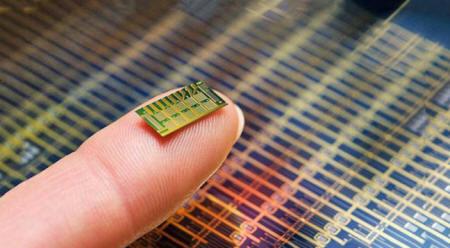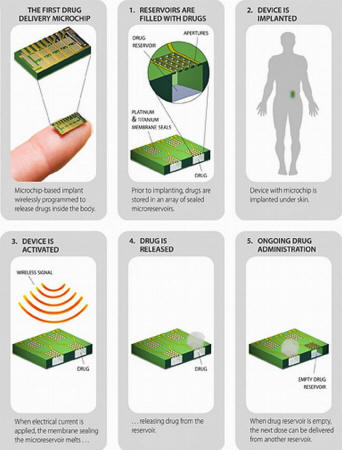|
from
OccupyCorporatism Website
The Bill & Melinda Gates Foundation (BMGF) have invested $4.6 million in MicroCHIPS (MCHPS), a remote controlled medical device that will be implanted into a human to control fertility.
The BMGF has partnered with the Massachusetts Institute of Technology (MIT) to provide this wireless device meant to make contraception,
Robert Farra, president of MCHPS said:
The remote controlled contraceptive called the Driving Intelligent Drug Delivery (DIDD) is expected to be implanted in an individual for 16 years and could be disabled when conception is wanted via remote control.
Development of the DIDD contraceptive is slated to begin human trials in 2015 because of the financial backing by the BMGF.
One purpose of this remote controlled contraceptive is to use the device in under-developed nations such as Pakistan and regions in Africa to ensure that population control is achieved.
According to MIT:
This device is under current application processes with the Food and Drug Administration (FDA) and hoped for commercial sales by 2018.
This microchip, a small as the tip of a finger, could be placed under the skin of the buttocks, upper arm or abdomen and will deliver a daily dose of the contraceptive levonorgestrel.
Levonorgestrel, aka Mirena, is an intrauterine contraception and synthetic hormone used for women who are undergoing treatment for heavy menstrual bleeding.
Known adverse effects of the pharmaceutical are:
Levonorgestrel is commonly used in many on-the-market birth control methods as an ingredient in pills and other contraceptive implants.
|


